Category Manager Salary Insights in the United States 2025

Hiring or retaining top procurement talent in 2025?
Understanding category manager salary benchmarks is critical. With supply chain complexity rising and category strategy gaining boardroom attention, the competition for experienced category managers is intensifying. Yet, many executives still rely on outdated compensation data, putting both recruitment and retention at risk.
This article breaks down the latest insights on category manager salary trends in the United States, including role variations, geographic factors, experience-based pay, and market outlook.
National Salary Averages & Ranges for Category Managers
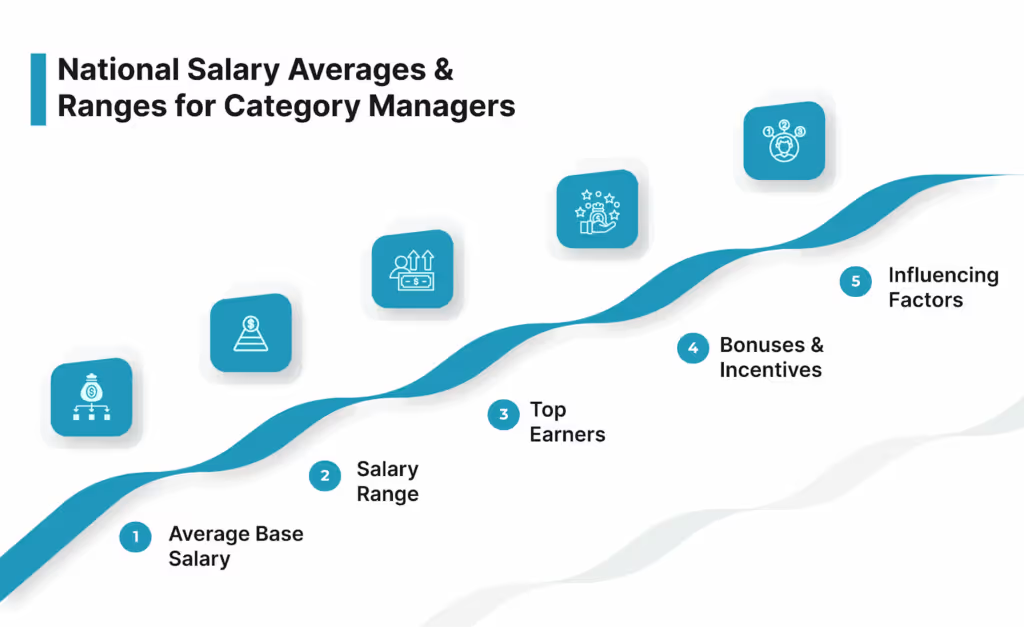
Understanding national benchmarks for category manager salary gives you a strong foundation for building competitive compensation packages. In 2025, salaries vary widely based on factors like company size, location, and experience level, but some clear national trends are emerging.
- Average Base Salary: As per Indeed, the national average salary for a category manager in the United States is approximately $99,074 per year.
- Salary Range: Reported salaries typically fall between $80,000 and $130,000, depending on the industry and region.
- Top Earners: Senior category managers or those working in high-cost metros (like NYC or San Francisco) can earn upwards of $145,000 annually.
- Bonuses & Incentives: Annual bonuses and performance-based incentives can add an additional 10–20% to total compensation.
- Influencing Factors: Education, certifications (like CPSM or CIPS), and tech stack experience (especially with AI-driven procurement tools) can significantly boost salary.
Let’s now explore how the category manager salary shifts based on role variations and specialization levels.
Role Variations & Compensation Levels for Category Managers
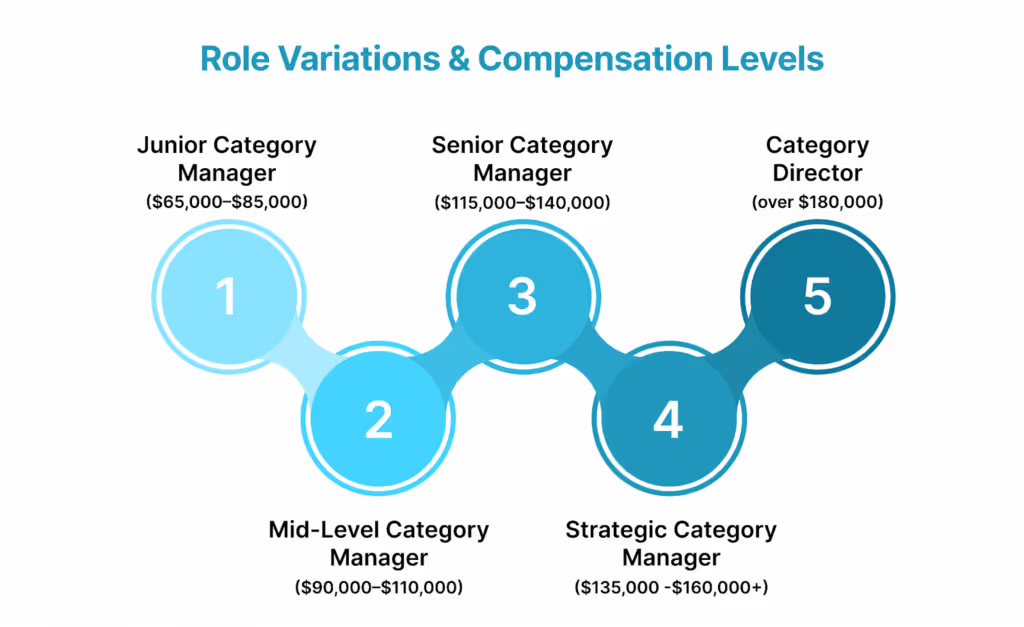
Not all category managers perform the same functions or earn the same salary. Your compensation often reflects the complexity of your responsibilities, the size of your team, and the strategic value you bring to the organization.
- Associate/Junior Category Manager: Typically earns between $65,000–$85,000, with limited strategic responsibility and more focus on support and data analysis.
- Mid-Level Category Manager: Falls in the range of $90,000–$110,000, managing categories independently and leading sourcing initiatives.
- Senior Category Manager: Commands between $115,000–$140,000, often handling high-spend categories and overseeing supplier negotiations, contracts, and performance.
- Global/Strategic Category Manager: Salaries range from $135,000 to $160,000+, particularly in multinational firms. These roles influence enterprise-wide procurement strategy and supplier relationships.
- Category Director or Head of Category Management: Can earn over $180,000, including bonuses and equity, with responsibility for multi-category portfolios, teams, and transformation projects.
Next, let’s examine how geography impacts your earning potential across different states and cities.
Geographic Impacts on Category Manager Salary in the US
Where you work plays a major role in how much you earn. Location influences not just your base pay, but also bonus potential, cost of living adjustments, and market demand for procurement expertise.
- California (esp. San Francisco & Los Angeles): Category managers here earn an average of $125,000–$150,000, driven by high cost of living and demand in tech and retail sectors.
- New York (esp. NYC): Salaries typically range from $120,000–$145,000, with financial services and global supply chains pushing compensation higher.
- Texas (Austin, Dallas, Houston): Averages hover around $105,000–$125,000, with growing opportunities in energy, healthcare, and logistics.
- Illinois (Chicago): Expect to see ranges between $100,000–$120,000, with strong demand from manufacturing and CPG companies.
- North Carolina (Charlotte, Raleigh): Salaries fall between $95,000–$115,000, reflecting a lower cost of living and growing tech presence.
- Remote Roles: National companies hiring remote category managers often offer competitive packages adjusted to market benchmarks rather than your zip code.
Let’s now explore how your career stage and years of experience shape your earning trajectory.
Career Stage & Experience Curve: How Your Role Evolves Over Time
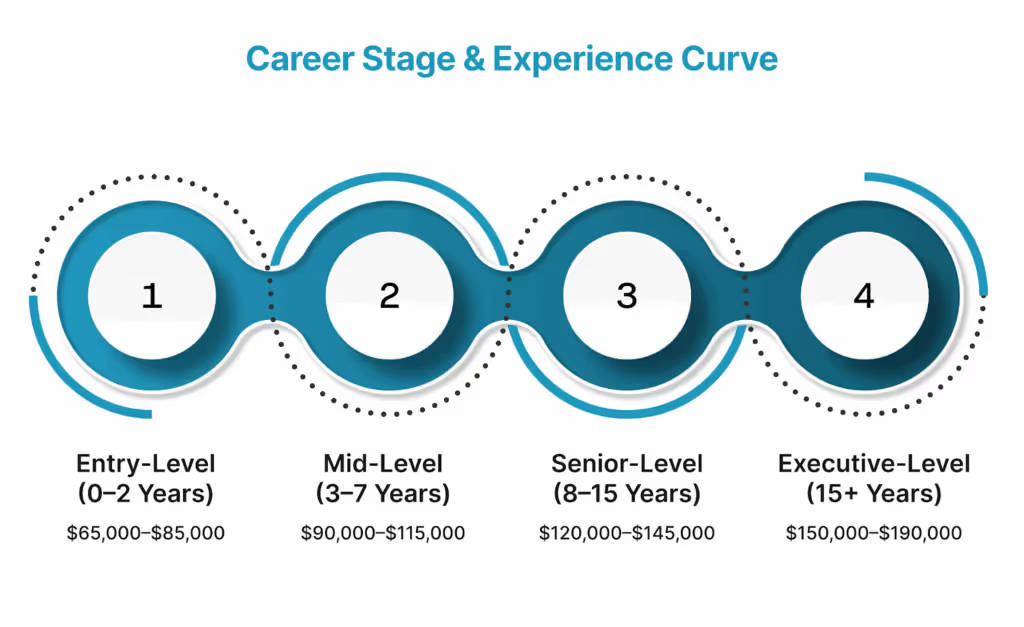
As a category manager, your salary typically scales with experience, skill depth, and strategic responsibility. Understanding the experience curve helps you benchmark your current earnings and plan your next move.
- Entry-Level (0–2 Years): You’re likely starting as a junior category analyst or coordinator. The average salary sits between $65,000–$85,000, depending on industry and location. Expect to focus on tactical sourcing, data gathering, and supplier support.
- Mid-Level (3–7 Years): At this stage, your title likely advances to category manager. You’ll earn anywhere from $90,000–$115,000, taking on vendor negotiations, budget ownership, and category strategy input.
- Senior-Level (8–15 Years): With more strategic influence, you could move into roles like senior category manager or procurement lead. Compensation ranges from $120,000–$145,000, including bonuses. You drive cost optimization, category planning, and cross-functional leadership.
- Executive-Level (15+ Years): Roles such as Director of Procurement or VP of Sourcing command salaries upward of $150,000–$190,000, especially in enterprise or multinational firms. Strategic oversight, supplier governance, and transformation initiatives become core responsibilities.
Now let’s break down the factors that most significantly influence these compensation levels.
Key Compensation Drivers: What Influences Your Salary
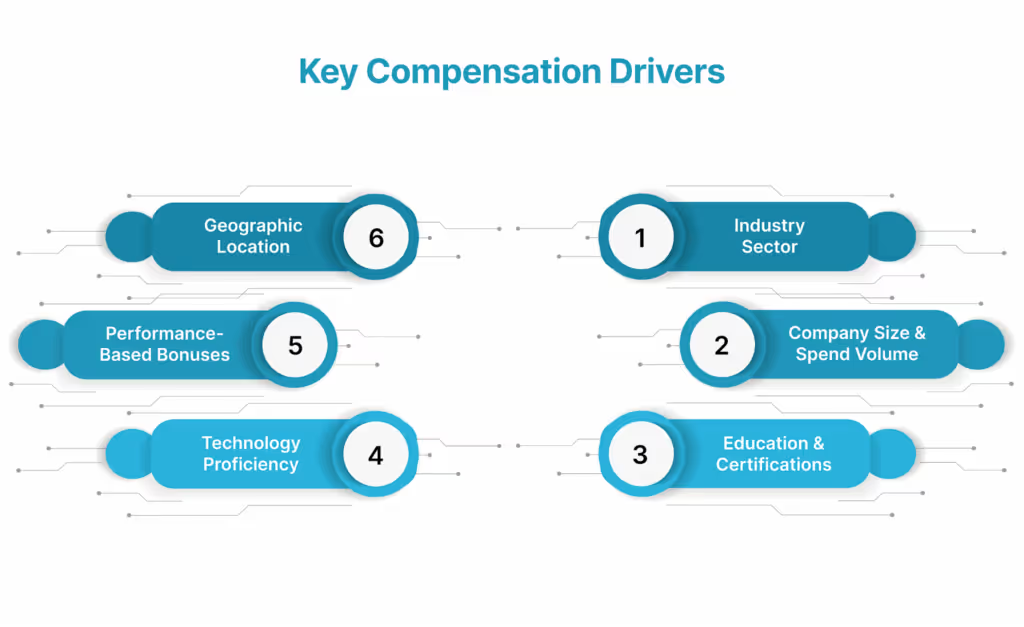
Understanding what drives your salary can help you make smarter career decisions, negotiate more confidently, and position yourself for growth. Several variables impact what you earn as a category manager, beyond just years of experience.
- Industry Sector: Salaries tend to be higher in industries like pharmaceuticals, technology, and manufacturing, where procurement complexity and spend volumes are greater.
- Company Size & Spend Volume: Larger enterprises with global supply chains typically offer higher compensation due to increased scope, risk, and strategic influence.
- Education & Certifications: Holding an MBA, CPSM, or CIPS certification can boost your earning potential significantly, some employers pay 10–15% more for certified professionals.
- Technology Proficiency: Familiarity with tools like SAP Ariba, Coupa, and AI-powered procurement platforms is increasingly a differentiator. Data-savvy professionals often command higher salaries.
- Performance-Based Bonuses: In many organizations, a sizable portion of compensation is tied to KPIs like cost savings delivered, contract cycle times, and supplier performance scores.
- Geographic Location: Urban centers and regions with high cost-of-living indices, like New York, San Francisco, or Boston, tend to offer higher base salaries.
As demand grows for skilled procurement leaders, it’s critical to stay ahead of evolving trends in the job market.
Actionable Advice: Optimizing Category Manager Compensation Strategy
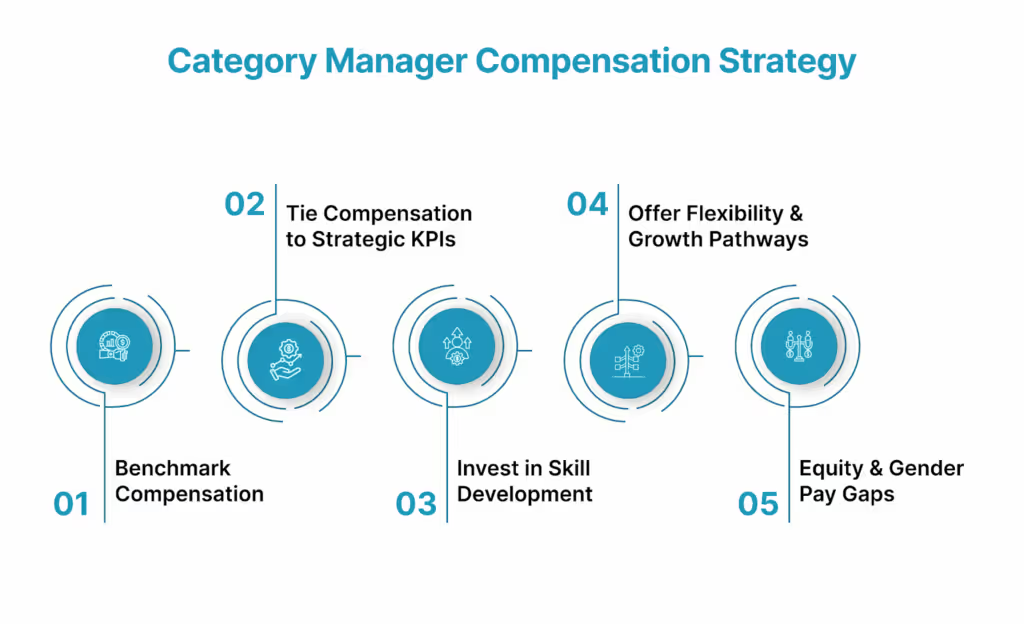
To attract and retain top category management talent, you need more than competitive salaries, you need a strategy. Whether you're scaling procurement operations or refining compensation models, aligning talent investment with business value is key.
- Benchmark Compensation Regularly: Use up-to-date salary data from credible sources like Glassdoor, Salary.com, and ZipRecruiter to stay competitive in your industry and region.
- Tie Compensation to Strategic KPIs: Structure bonuses or incentives around cost savings, supplier innovation, risk mitigation, or ESG targets to drive high-impact performance.
- Invest in Skill Development: Support certifications (e.g., CPSM, CIPS), training in data analytics, or AI procurement tools to future-proof your talent pool and justify higher salaries.
- Offer Flexibility and Growth Pathways: Hybrid work options, leadership opportunities, and cross-functional exposure can elevate your EVP (employee value proposition) beyond base pay.
- Evaluate Equity and Gender Pay Gaps: Conduct internal audits to identify and close compensation gaps across categories, locations, and diverse talent pools.
Understanding these strategies positions you to compete in an evolving procurement talent market, where demand outpaces supply.
Conclusion
Understanding the dynamics behind category manager salary trends isn't just a matter of compensation but a strategic advantage. As businesses compete for top procurement talent, aligning salary structures with role complexity, geography, and performance expectations becomes critical. You now have the insights to benchmark effectively, set competitive pay scales, and empower your category teams with clarity and purpose.
But insight alone isn't enough, you need the right tools to act on it.
With our AI-powered platform, you can link salary data to strategic performance, optimize team structures, and ensure your category managers deliver maximum value.
Ready to make smarter talent and category strategy decisions? Book a personalized demo with akirolabs and elevate your procurement leadership today.
What makes a successful pilot with akirolabs?
We define success collaboratively with your team. Typical outcomes include strategy creation for priority categories, measurable process improvements, and internal alignment. We provide full support and a clear roadmap for evaluation.
Can I try the platform hands-on after the demo?
Yes, we offer guided pilots and sandbox environments depending on your stage in the buying process. These give you and your team the opportunity to explore features in your own context.
Can I see how akirolabs would work with our specific categories?
Yes, we can tailor the demo to showcase how akirolabs works with your specific categories and procurement structure. Let us know your priority areas in advance, and we'll customize the demonstration accordingly.
Who should attend the demo from my organization?
We recommend including key stakeholders from your procurement leadership team, category management function, and procurement excellence or transformation groups. Including business stakeholders can also be valuable to demonstrate how the platform facilitates cross-functional collaboration.
How long does a typical demo take?
A standard demo takes approximately 45-60 minutes, allowing time for a comprehensive overview of the platform and discussion of your specific requirements. We can adjust the timing based on your availability and areas of interest.
What will I see during an akirolabs demo?
During the demo, you'll see the complete akirolabs Category Strategy Workbench in action, including the collaborative workflow, AI-powered insights from akiroAssist, strategic scenario modeling capabilities, and the Strategy One-Pager feature. We'll customize the demonstration to focus on aspects most relevant to your organization's needs.
Ready to Transform Your Procurement Strategy?
There’s a better way to do procurement. This is IT.
.avif)
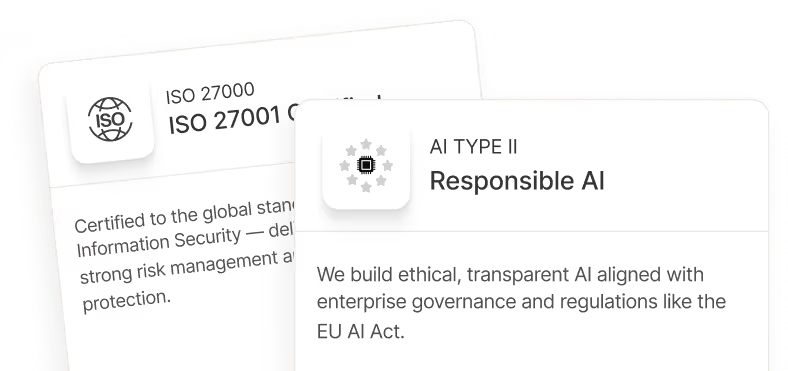






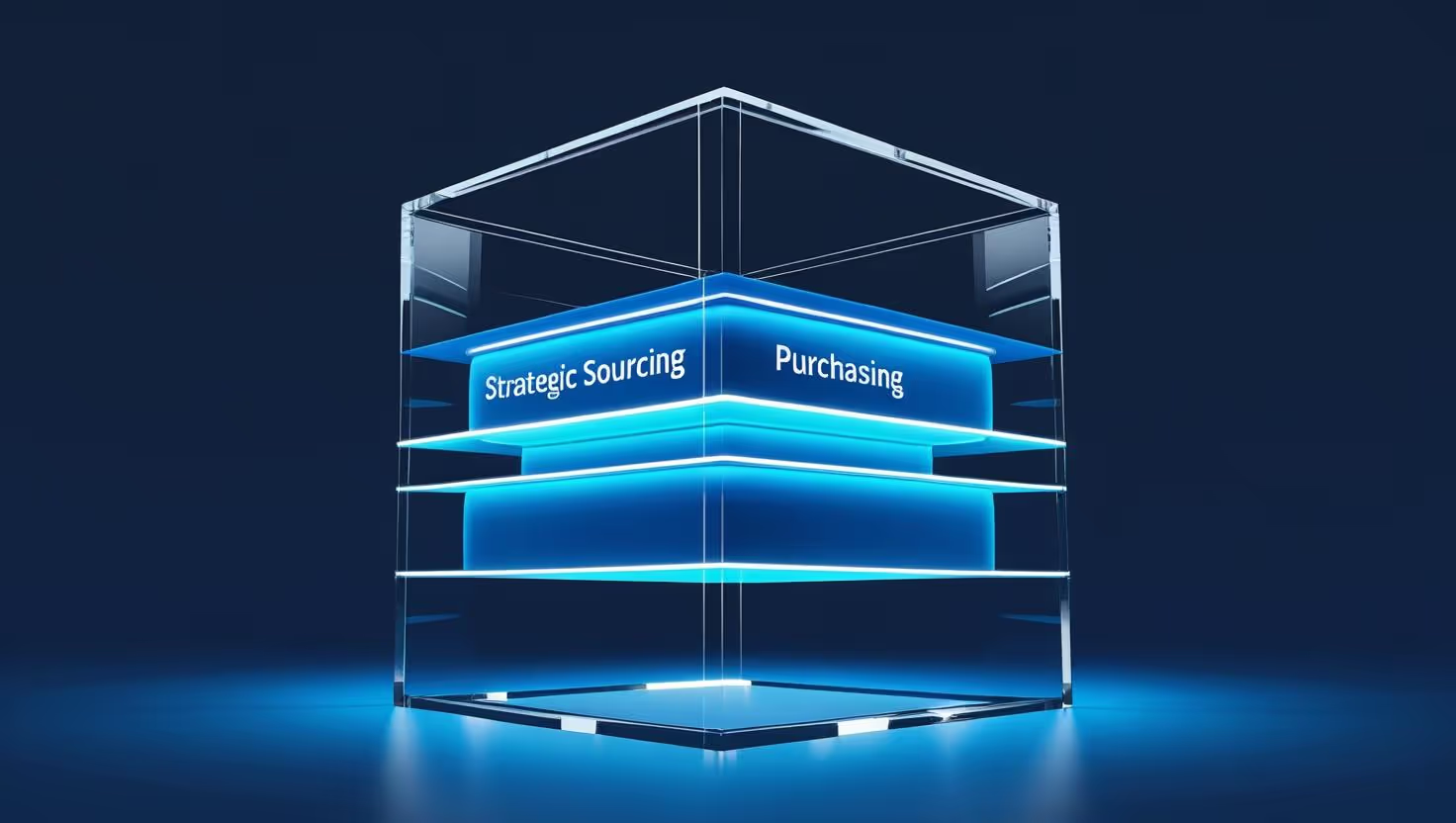






















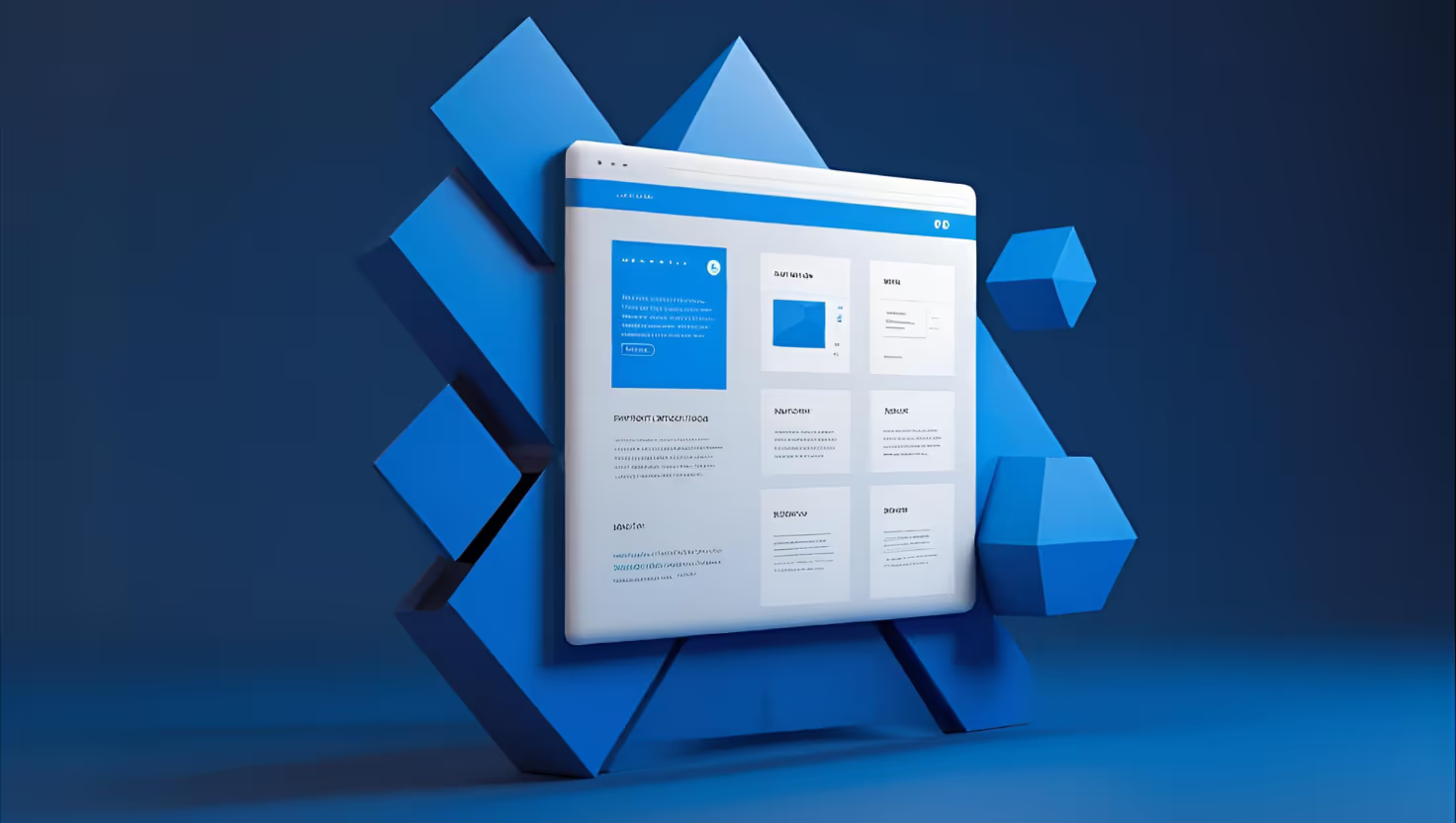










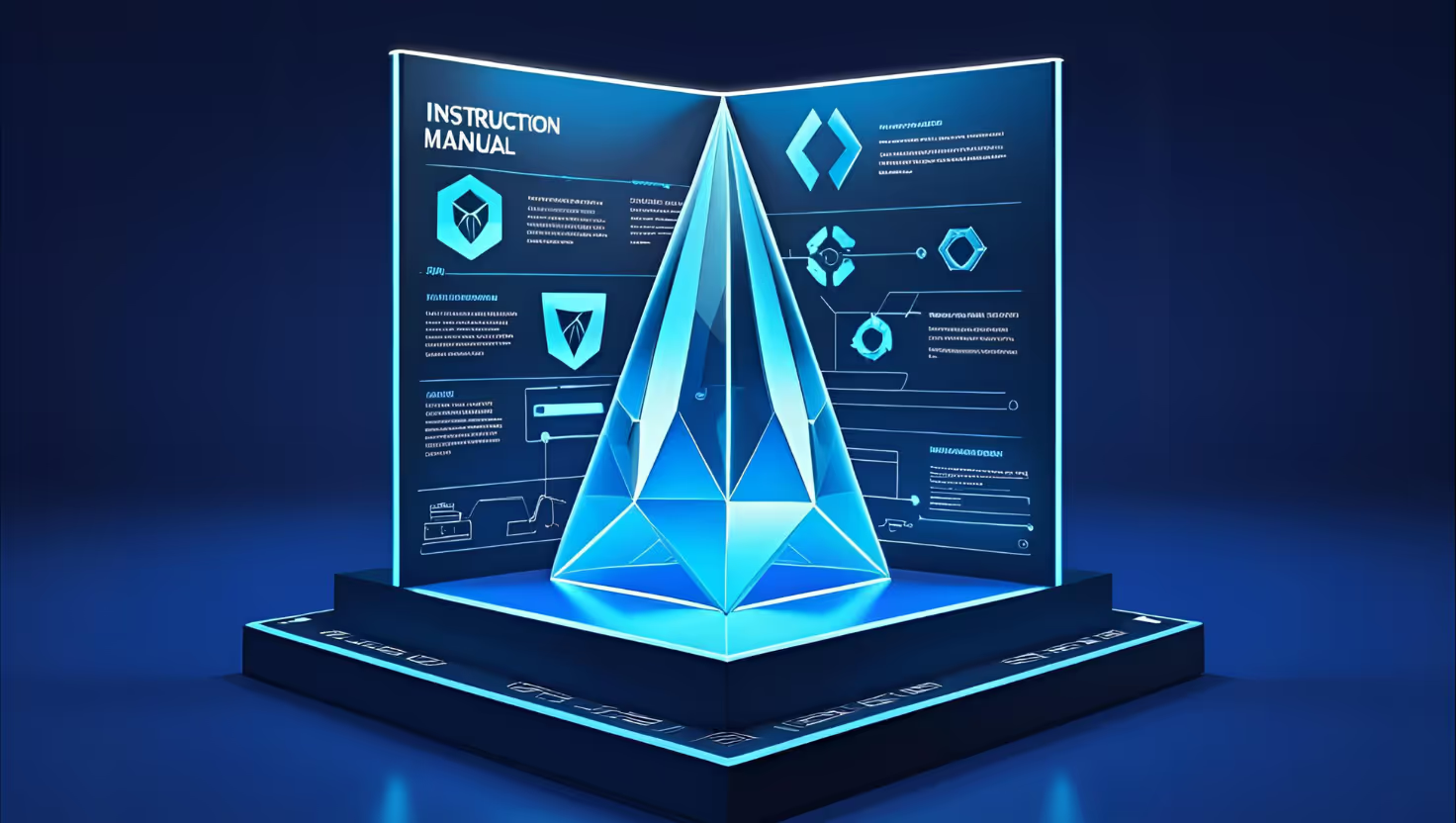




















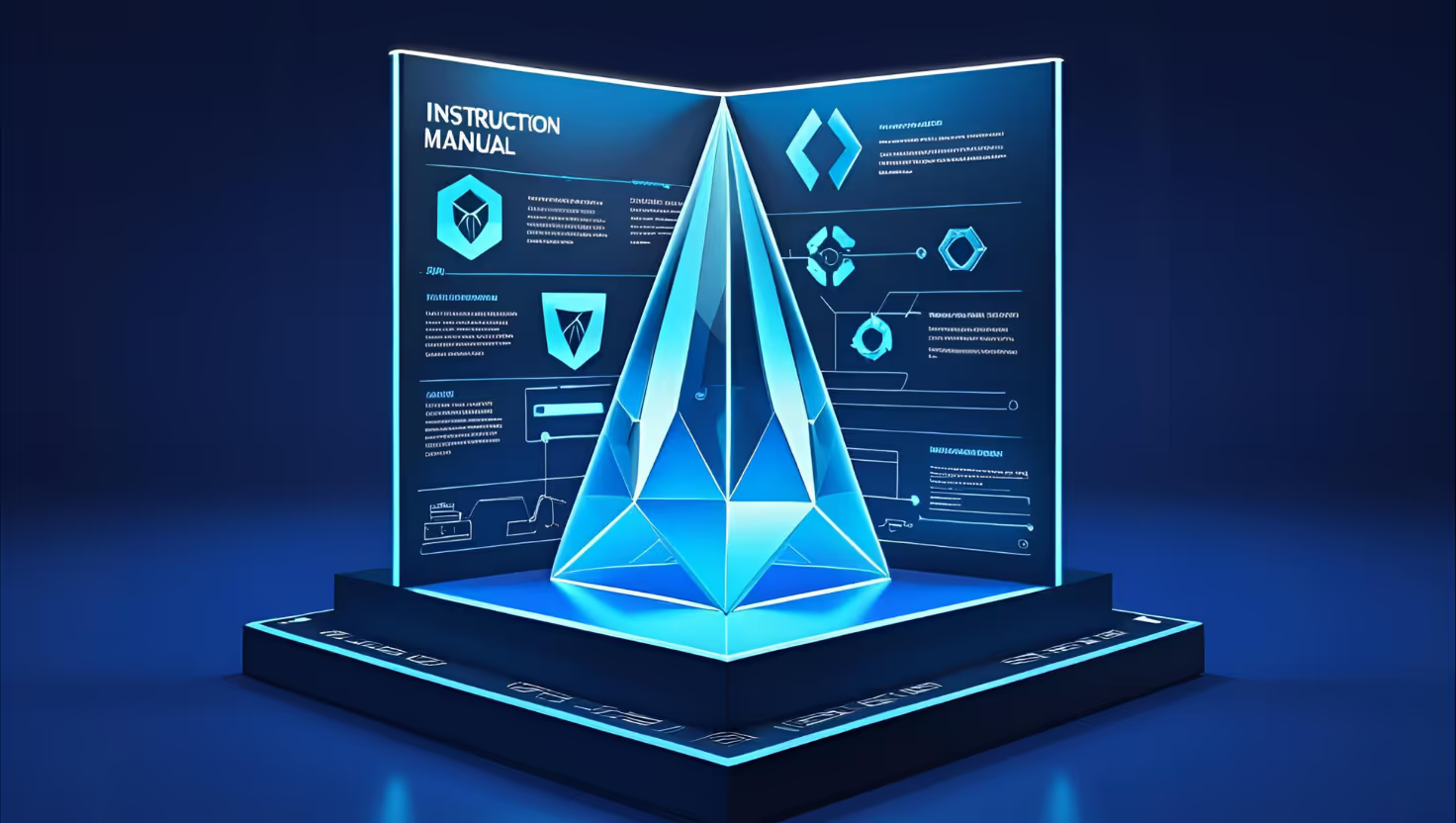






































.avif)







